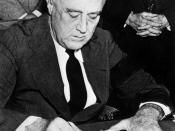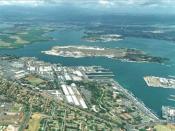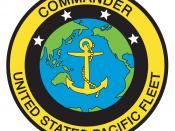Before entering World War II, Japan had many other problems to deal with. It had begun to rely more and more for raw materials (especially oil) from outside sources because their land was so lacking in these. Despite these difficulties, Japan began to build a successful empire with a solid industrial foundation and a good army and navy. The military became highly involved in the government, and this began to get them into trouble. In the early 1930's, the Japanese Army had many small, isolated battles with the Chinese in Manchuria. The Japanese Army prevailed in the series of battles, and Manchuria became a part of the Japanese political system. In 1937, the conflicts began again with the Chinese in the area near Beijing's Marco Polo Bridge. Whether or not these conflicts began inadvertently or whether they were planned is unknown. These led to a full-scale war known as the second Sino-Japanese War.
This was one of the bloodiest wars in world history and continued until the final defeat of Japan in 1945.
In 1939, World War II was beginning with a string of victories by German forces. Germany's success included defeats of Poland and France along with a seizure of England. Many of the European nations that Germany now controlled had control over important colonial empires such as the East Indies and Singapore in Southeast Asia. These Southeast Asian countries contained many of the natural resources that Japan so desperately needed. Now that these countries were worried about matters over in Europe, Japan felt that it should seize the opportunity to take over some of them.
At the same time in the United States, President Franklin D. Roosevelt wanted to halt the expansion of Germany and Japan, but many others in the government wanted to leave the situation alone.


